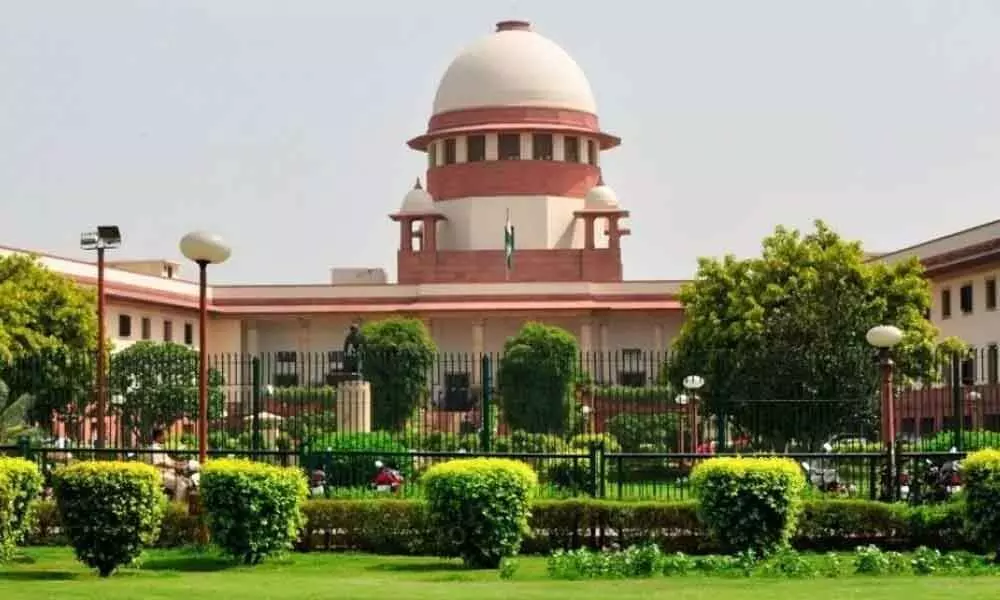Jahanvi Agarwal
On 6th August 2024, the Supreme Court took up a suo motu case concerning Punjab and Haryana High Court Judge Justice Rajbir Sehrawat’s order, which criticized the Supreme Court for pausing proceedings in a matter pending before his bench in the present case. The case is scheduled for a hearing on 7th August 2024 before a five-judge bench, including Chief Justice of India DY Chandrachud and Justices Sanjiv Khanna, BR Gavai, Surya Kant, and Hrishikesh Roy.
In his July 17 order, Justice Sehrawat argued that the Supreme Court lacks jurisdiction over contempt of court proceedings linked to an order from the High Court. Justice Sehrawat explained that the Supreme Court’s involvement in these matters is limited, typically only arising in the context of an appeal against a decision made by a Division Bench of a High Court that convicts a person of contempt.
Justice Sehrawat noted that, according to the Contempt of Courts Act, the Supreme Court cannot entertain an appeal against an order issued by a single judge; instead, such an appeal should be directed to a Division Bench of the High Court. He emphasized that “the powers of the appellate court are well defined,” meaning the appellate court has specific limits regarding the stage at which it can hear an appeal and the kinds of orders it can issue.
Therefore, unless a Division Bench has rendered a conviction, the Supreme Court is not the proper venue for appeals related to contempt proceedings initiated at the High Court level. Justice Sehrawat even suggested that the Supreme Court’s stay order was “in the nature of controlling roster of High Courts in hearing of criminal cases.”
Justice Sehrawat discussed the relationship between the Supreme Court and High Courts, emphasizing that the Supreme Court has repeatedly affirmed that High Courts are not administratively subordinate to it. He remarked that at a deeper psychological level, such orders are driven by two main factors.
First, there is a tendency to shirk the responsibility for the consequences that such an order might inevitably cause, under the assumption that a stay of contempt proceedings does not harm anyone. Second, there is a perception that the Supreme Court is more ‘Supreme’ than it truly is and that a High Court is less ‘High’ than it is constitutionally intended to be. He argued that “the Supreme Court is often assumed to wield more power than it does in reality,” and there is a corresponding belief that “a High Court’s authority is underestimated,” which influences these judicial dynamics.
He also referred to the Supreme Court’s suggested rules for the designation of Senior Advocates, comparing them to the political election procedures for municipal bodies, which are designed to “breed servility”. He remarked that High Courts often follow directions from the Supreme Court, sometimes due to perceived coercion or out of institutional respect.
Justice Sehrawat highlighted the “drastic and damaging consequences” of such stay orders in contempt proceedings, suggesting that these consequences “may not have occurred to the Supreme court in its most wide imaginations.” He had previously criticized a Division Bench of the High Court in May for directing the contempt court not to proceed with a matter, asserting, “The contempt Court does not draw its jurisdiction and powers to consider and decide a contempt petition; from any authorization or concession conferred upon it by any Division Bench. The contempt Court, per se, has that authority and powers as per the Contempt of Courts Act, and more widely, under the provisions of the Constitution of India itself.” Additionally, in a separate case, he had refused to comply with a division bench’s stay order, dismissing it as a “rubbish order.”
Case Name: Naurty Ram v. Devender Singh IAS & Anr.
Dairy Number: 87/2022
Bench: Chief Justice of India DY Chandrachud, and Justices Sanjiv Khanna, BR Gavai, Surya Kant, and Hrishikesh Roy.

